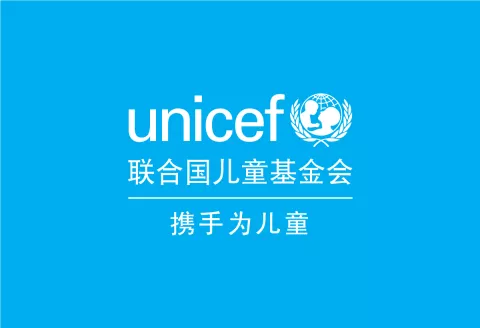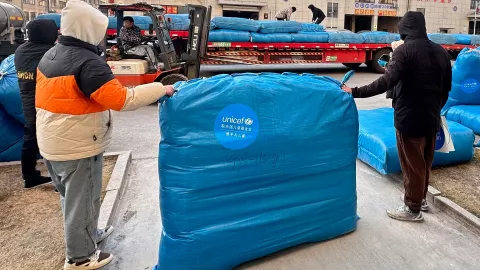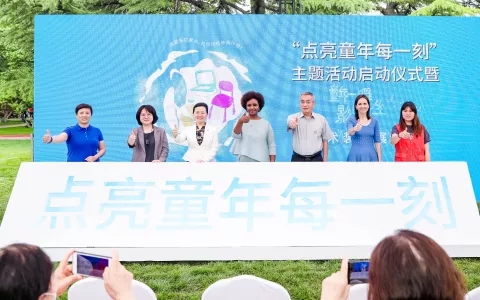Experience Exchange for Safer Schools
Sichuan Earthquake Three Year Special
- Available in:
- 中文
- English
During the reconstruction period, UNICEF has worked closely with education authorities to support the development of child-friendly and earthquake-resistant construction standards for schools in the Sichuan earthquake zone. UNICEF's work in this highly technical area has relied on strategic linkages with international bodies, an example of how experience exchange and supportive partnerships can support the wellbeing of children.
In the months after the earthquake, all school buildings in the Sichuan earthquake zone and around the country were assessed for safety. Preliminary assessments found that thousands of schools in Sichuan would have to be rebuilt or retrofitted. However, no national standards existed for retrofitting.
In October 2008, UNICEF supported a delegation of education policymakers and technical experts to visit Japan to learn global best practices on school reconstruction. During the visit, the delegation learned how to assess the earthquake resistance of school buildings, retrofit vulnerable buildings, and develop safety standards for new construction.
Lessons learned from that visit helped to inform the development of management guidelines on retrofitting and school safety. In late 2008, the Ministry of Education released its Guidelines on Post-Earthquake New School Construction and Design, laying the foundation for the construction of 3,300 schools and retrofitting of 1,500 schools.
With experience gained from the trip to Japan and follow-up consultations with the world's leading technical experts, UNICEF also supported the Ministry of Education in conducting nationwide school safety assessments and establishing a database to identify vulnerable buildings to be retrofitted. Today, all 31 provinces maintain a school safety database, reflecting increased awareness of and commitment to keeping children safe in school. The provincial-level databases serve as a significant reference to aid decision-making in the allocation of funds for school retrofitting and construction, and will have long-term implications for the safety of schools and children.
In May 2011, Chen Feng, a Deputy Director-General of the Ministry of Education, will represent China at the World Reconstruction Conference in Geneva, the first large-scale global conference focused on natural disaster recovery and reconstruction. At the meeting, China will share its experiences and good practices on the post-emergency rehabilitation of education services and school risk reduction. Strengthened by the experiences gained from the Sichuan earthquake response, China is now playing its part to promote policy dialogue for an effective international disaster recovery and reconstruction framework.




